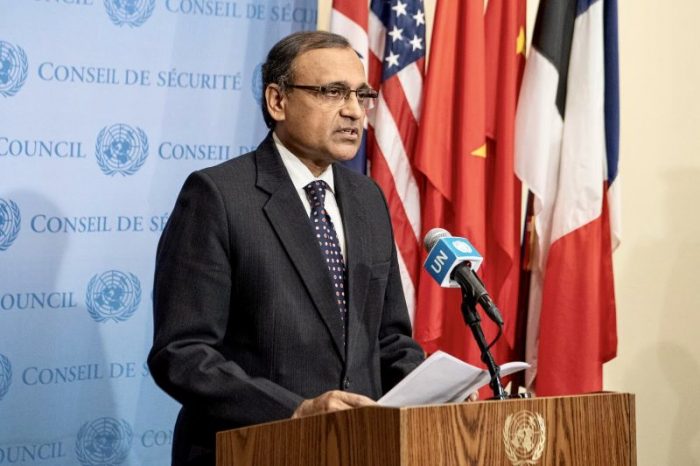India, which has begun its stint as a non-permanent member of the UN Security Council for 2021-22, will be chairing three key UN sanctions committees for the next two years. But why is it a concern for Pakistan?
Why India, Unlike Turkey, Will Not Invite US Sanctions Over Its S-400 Deal With Russia?
India will chair the Taliban sanctions committee, the counter-terrorism committee, and the Libya sanctions committee. Observers in Pakistan fear that as a chair of the Taliban sanctions committee and the counter-terrorism committee, India may harass Pakistan by imposing sanctions.
TS Tirumurti, India’s envoy to the UN, has said: “The Taliban sanctions committee…has always been a high priority for India, keeping in mind our strong interest and commitment to peace, security, development, and progress of Afghanistan”.
The committee was formed through resolution number 1988 in 2011. The 1267 sanctions regime on al-Qaeda was split amid growing concerns over alarming levels of violence by the Taliban in Afghanistan.
The Taliban sanctions committee is responsible for making the list of countries financially supporting or associated with the Taliban. Based on this list, countries around the globe change their laws and ban the organizations supporting the terror group.
On the Taliban sanctions committee, Tirumurti had said: “Our chairing this committee at this juncture will help keep the focus on the presence of terrorists and their sponsors threatening the peace process in Afghanistan. It has been our view that the peace process and violence cannot go hand in hand.”
As far as the counter-terrorism committee is concerned, it was formed in the aftermath of the 9/11 terror attacks in New York. India had led it before, during its last stint as a non-permanent member of the UN Security Council during 2011-12.
According to the Indian envoy to the UN, the chairing of this committee has a special resonance for India because it has not only been at the forefront of fighting terrorism, especially cross-border terrorism but has also been one of its biggest victims.
Experts point out that India’s role in both these committees is crucial to Pakistan, which is already in the process of fulfilling the Financial Action Task Force (FATF) recommendations. The global body deals with money laundering and terror financing.
There has long been the perception that India has been trying to put Pakistan on FATF’s blacklist, hence blocking international funding to the country.

Bigger Concerns
As a chair, India has the ability to set the agenda and make a difference. The chair can bring up issues that may not have been discussed before, even if the members may disagree with them.
However, experts point out that as chair, India cannot take any action against Pakistan in its own interest. As chair of both the counterterrorism committee and Taliban sanctions committee, the country has to ensure its role doesn’t change in Afghanistan.
While Pakistani observers fear this will give India a backdoor entry into the Afghan peace process, Indian experts have reiterated that India will only be keeping an eye on the developments in Afghanistan and not interfering in the process.
Pakistan experts say Islamabad has played a key role in the dialogue between the United States and the Taliban on the one hand and the Afghan government and the Afghan Taliban on the other and India may try to harm these fundamental interests.
Meanwhile, India, which has invested heavily in peace and development of the war-torn country, has reiterated that it will support all efforts of bringing peace and stability to the country.
External Affairs Ministry spokesperson Anurag Srivastava had said: “Our position on the peace process has also been articulated. The peace process must be Afghan-led, Afghan-owned, and Afghan-controlled. As an important stakeholder, we look forward to working towards a peaceful, prosperous, sovereign, democratic, and united Afghanistan.”
Follow EurAsian Times on Google